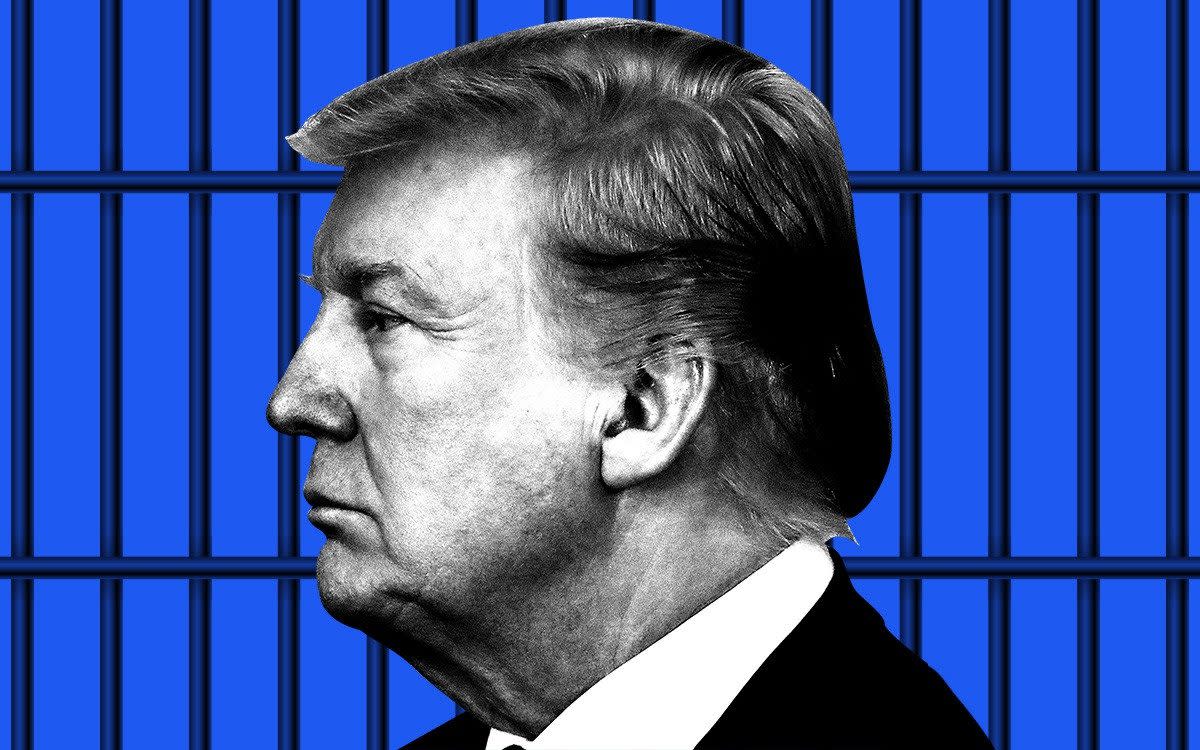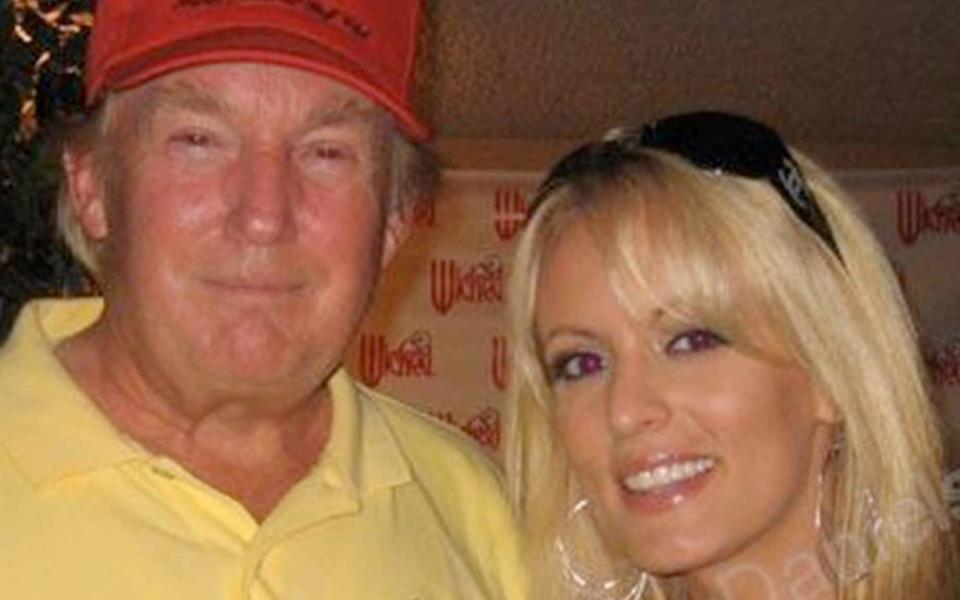Mugshot and fingerprints: What happens if Donald Trump is arrested

Donald Trump could be staring down a police station camera having his mugshot taken in a matter of days.
If, as expected, the former president is charged in New York for allegedly covering up hush money payments to a porn star during his 2016 presidential campaign, he will be ordered to travel to the office of Alvin Bragg, the Manhattan District Attorney (DA), and hand himself in.
But any announcement has been delayed after the Manhattan grand jury hearing evidence against Mr Trump was postponed on Wednesday without a reason given.
The pause will likely delay the process into next week, sources said.
However, there is another scenario that legal analysts say the Manhattan DA “would be dreading”.

Mr Trump is understood to be at his Mar-a-Lago home. He could refuse to leave and hand himself in, essentially challenging Mr Bragg’s office to arrest him.
“One could imagine Trump wanting to do that for the politics and the optics, to make himself look more sympathetic,” said Shan Wu, a former federal prosecutor now in private practice.
In this scenario, an extradition request would be made – and have to be signed by Mr Trump’s probable Republican rival for the 2024 nomination, Ron DeSantis, the governor of Florida.
In practical terms, the Manhattan DA’s office would present the indictment to the office of Kathy Hochul, the Democrat governor of New York.
She would then send a written extradition demand to Mr DeSantis, along with a copy of the indictment.
Mr DeSantis’s role has been described as “purely administrative” in that it is to make sure the indictment is valid, and he would be expected to order the extradition.
There is little wiggle room for the Florida governor.
“If Trump is indicted in New York, both the US Constitution and a federal statute dating to 1793 require DeSantis (or the governor of whatever state Trump is in at the time) to hand him over,” explained Steve Vladeck, a University of Texas law school professor and an MSNBC opinion columnist.
“And if DeSantis still refuses, a 1987 Supreme Court decision makes clear that federal courts can order him to comply.”
Mr DeSantis can, however, slow the process down.
According to Michael Bachner, a New York-based lawyer and former assistant DA in Manhattan, he could ask his legal affairs office or a prosecutor to review Ms Hochul’s extradition demand and write a report on it before signing off on it.
But if the extradition demand is legitimate, he’ll have to sign it within 60 days, Mr Bachner told Insider.
Then Mr Trump would have a decision to make – get on a plane and travel to New York to hand himself in, or stay put in Mar-a-Lago and wait to be taken out in handcuffs. For now, his private Boeing 757 - dubbed 'Trump Force One' is parked at Palm Beach airport.
Given that New York police don’t have jurisdiction in Florida, it would likely be Palm Beach Police officers who would go to the property, take him into custody and transfer him to New York.
An even more remote scenario would involve the Manhattan DA’s office sidestepping Mr DeSantis completely and ordering a warrantless pre-requisition arrest – which is usually designed for a citizen’s arrest of fugitives.
While only valid for felony charges, authorities would arrest Mr Trump in Florida and take him in front of a judge for a probable cause hearing to prove he was criminally charged in New York with a felony. A judge would then order Mr Trump’s extradition.
‘The right to remain silent’
For Mr Trump, the choreography will be key. If he chooses to “self surrender” in New York, he can arrange a time to be booked and processed.
Mr Trump's attorney, Joe Tacopina, insists the process will be orderly.
“There won’t be a standoff at Mar-a-Lago with Secret Service and the Manhattan DA’s office,” Tacopina told the New York Daily News.
It is unclear whether Mr Trump’s legal team have negotiated special arrangements, or whether he will have to do a “perp walk” in front of flashing cameras.
The former president has reportedly told friends that he actually welcomed the idea of being paraded by the authorities, has debated whether he should smile or not for the cameras, and described the potential event as a "fun experience".
In any case, once inside, Mr Trump will hear the words: “You have the right to remain silent. Anything you say will and can be used against you in a court of law. You have the right to an attorney, and if you cannot afford one, they will be provided for you.”
Shortly after, his fingerprints and mugshot will be taken.
He will then be formally arraigned and appear in court to plead guilty or not guilty at the Criminal Courts Building. It is standard for defendants arrested on felony charges to be handcuffed.
Given that he is unlikely to be a flight risk, Mr Trump will probably be immediately released on bond and free to leave New York. He is due to speak at a presidential campaign rally in Texas on Saturday.

 Yahoo News
Yahoo News 
